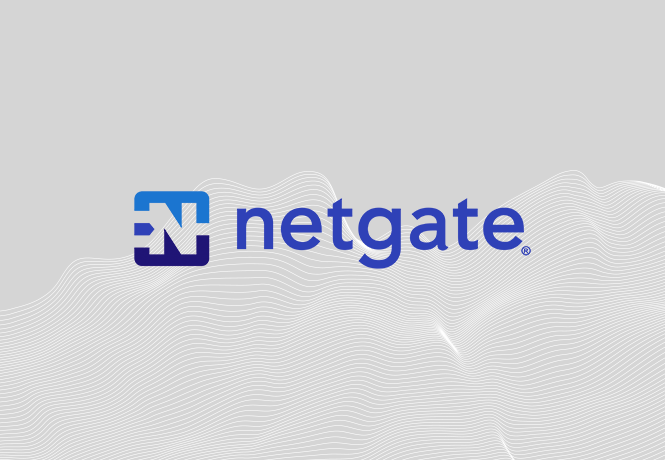Following in-depth evaluation and collaborative discussions, Netgate today announces a significant strategic shift in the technological foundation of the pfSense project. We are excited to reveal plans for the migration of the pfSense platform from the FreeBSD operating system to a Linux kernel with a FreeBSD userland.
This decision arises from a comprehensive analysis that carefully considered the evolving landscape of network security and the ever-growing needs of the pfSense community. While FreeBSD has served the pfSense project exceptionally well for nearly 20 years, the limitations inherent in its ecosystem necessitate a move towards a more dynamic and future-proof platform. The advantages offered by a Linux base present compelling opportunities for continued growth and advancement.
Unlocking a World of Possibilities: The Benefits of a Linux Foundation
- Enhanced Package Availability: pfSense has traditionally provided a curated set of essential tools that cater to a broad range of network security needs. However, the Linux ecosystem boasts a vast universe of readily available software packages. This transition unlocks a whole new level of customization and flexibility for users. Network administrators will have the ability to tailor pfSense to address highly specialized needs and integrate specific functionalities seamlessly into their security environment.
- Performance Optimization Potential: The Linux kernel benefits from a vibrant and active developer community constantly pushing the boundaries of performance optimization. This dynamic environment is further fueled by the vast amount of vendor contributions from hardware manufacturers and software developers alike. These contributions ensure that the Linux kernel remains optimized for a wide range of cutting-edge hardware and software configurations, with the potential to unlock significant performance gains for users with high-throughput network requirements.
- Cloud-Native Integration: As the modern network increasingly interacts with cloud infrastructure, tools that seamlessly navigate hybrid environments become crucial. By transitioning to a Linux base, pfSense can leverage native cloud integration and container capabilities available with the Linux kernel. This streamlines workflows and simplifies the management of network resources deployed across hybrid on-premises and multi-cloud environments.
- Expanded Hardware Support: The Linux kernel enjoys widespread adoption across a vast array of hardware architectures. This includes not only traditional x86 platforms but also other architectures such as RISC-V and ARM. This transition positions pfSense to take advantage of this broader hardware compatibility, potentially enabling deployment on a wider range of devices, from low-power network appliances to cutting-edge high-performance servers.
- Enhanced Wireless Functionality: The Linux kernel offers a robust foundation for wireless networking. By tapping into this potential, pfSense on Linux will open doors to improved Wi-Fi performance, stability, and feature integration. Users will benefit from a wider range of compatible, wireless cards based on modern 802.11 standards, such as Wi-Fi 7.
Following a similar path to our sister project, TrueNAS
This strategic shift aligns with recent work by iXsystems to migrate the TrueNAS enterprise storage platform to Linux. Both FreeNAS (which has becomeTrueNAS) and pfSense originally forked from m0n0wall over 20 years ago. While TrueNAS and pfSense software are focused on different market segments, by leveraging the vast potential of the Linux ecosystem, both pfSense and TrueNAS are positioned for continued innovation and a brighter future.
Following a Well-Established Path: Netgate's Experience with Linux
Netgate, the company behind pfSense, isn't new to the Linux world. For over eight years, we've been developing and refining our TNSR software, a high-performance, software-based router built on a Linux foundation. This experience gives us invaluable insights and expertise that we'll leverage to ensure a smooth and successful migration of pfSense software to Linux.
Addressing Concerns: Stability and Security Remain Paramount
We understand that this announcement naturally raises questions about potential impacts on the core strengths of pfSense software, particularly stability and security. However, we want to assure our community that the choice to adopt Linux is not made lightly.
The Linux kernel has earned a well-deserved reputation for reliability and enjoys widespread adoption in mission-critical environments. This proven track record provides a strong foundation for the continued stability of pfSense software. Additionally, the Netgate development team possesses extensive expertise in both FreeBSD and Linux. We are committed to ensuring a smooth and secure migration process, prioritizing the continued stability and robust security of the pfSense platform.
Collaboration and Community Engagement: Building a Strong Foundation
The transition to Linux is not a solitary endeavor. We are actively forging strategic partnerships with key players in the Linux community. This collaboration leverages the expertise and vast resources of these partners, fostering a robust development environment optimized for the future of pfSense.
We understand the importance of open communication and value the contributions of our dedicated user base. We plan to provide comprehensive documentation, step-by-step migration guides, and ongoing support throughout the process. Our commitment extends to ensuring that the community has the necessary resources and information to navigate this transition with ease.
A New Chapter for pfSense: A Future Focused on Agility and Adaptability
We acknowledge that some users may prioritize the familiarity and stability offered by a FreeBSD base. While the pfSense project remains committed to this platform for the foreseeable future, it's important to recognize the limitations of its ecosystem. For users seeking a future-oriented approach with access to a vast software repository and broader hardware compatibility, the migration to Linux represents a significant leap forward.
We are confident that this transition will solidify the position of pfSense software as the leading open-source platform for robust network security solutions. We invite the entire pfSense community to join us on this journey. Together, we will ensure a seamless migration and pave the way for a more powerful, adaptable, and future-proof pfSense platform.
-01.png?width=926&height=181&name=Netgate%20Logo%20PMS%20(horizontal)-01.png)
%201.png?width=302&name=Netgate%20Logo%20PMS%20(horizontal)%201.png)
